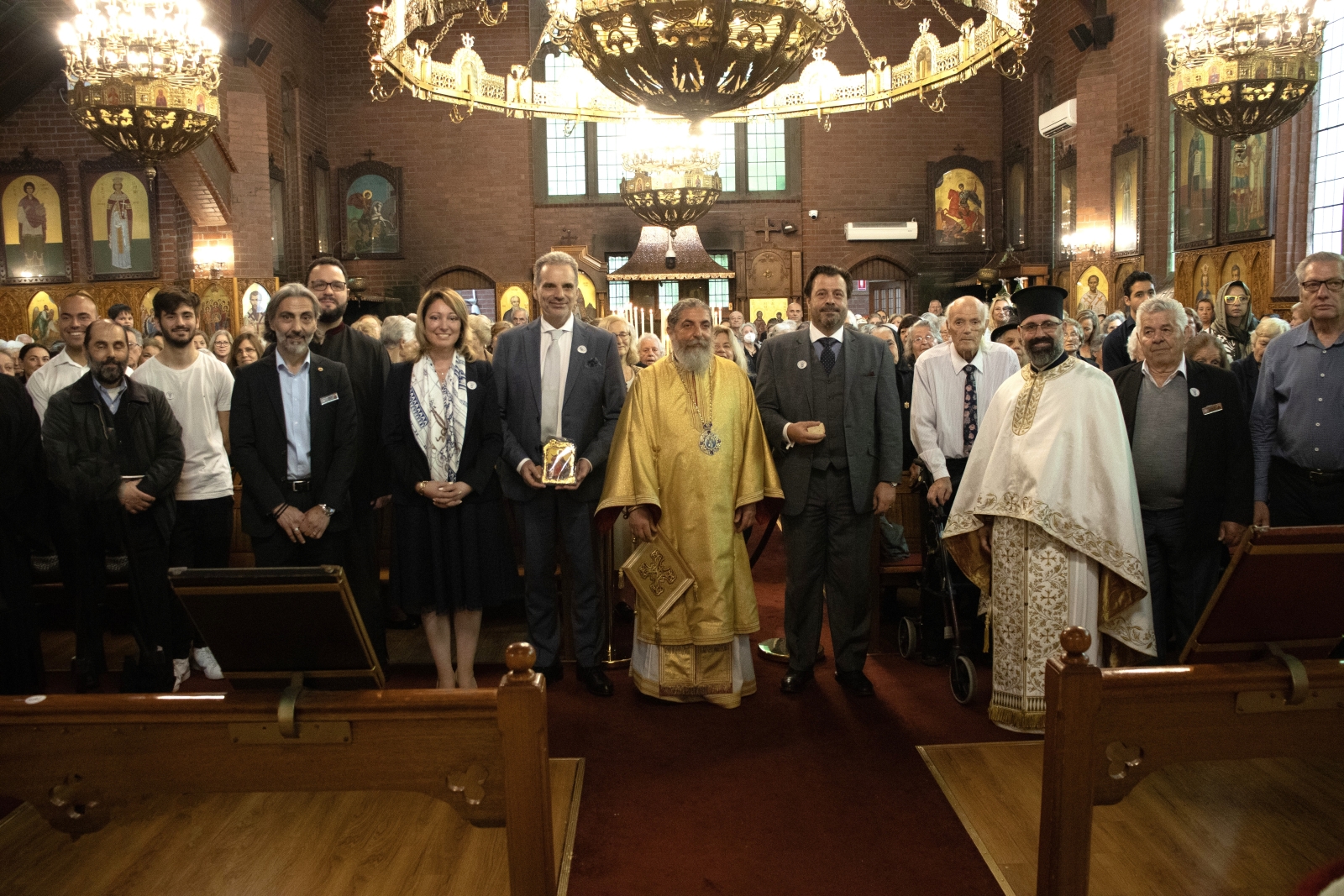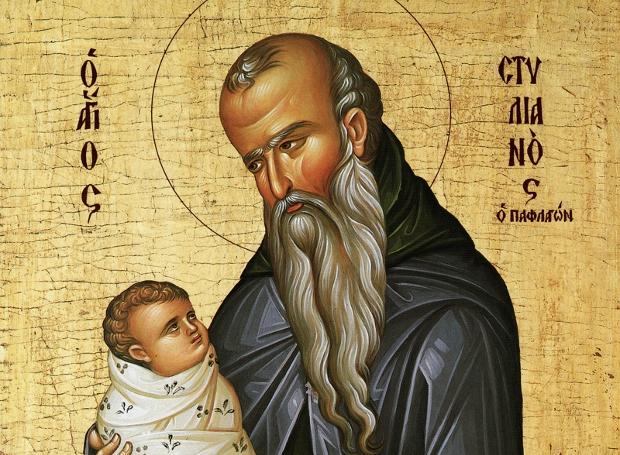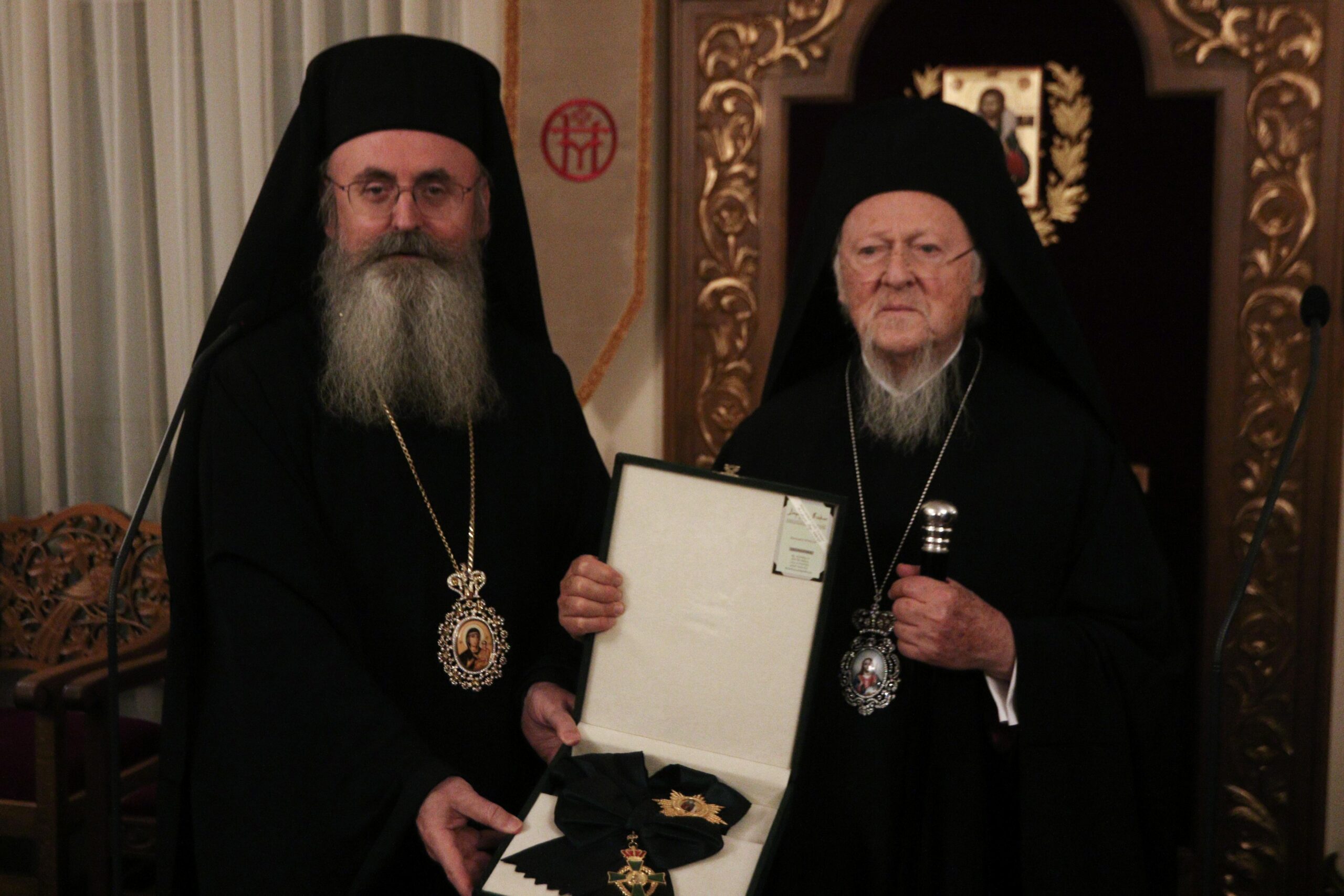Saint John the Merciful, Patriarch of Alexandria (12 November)
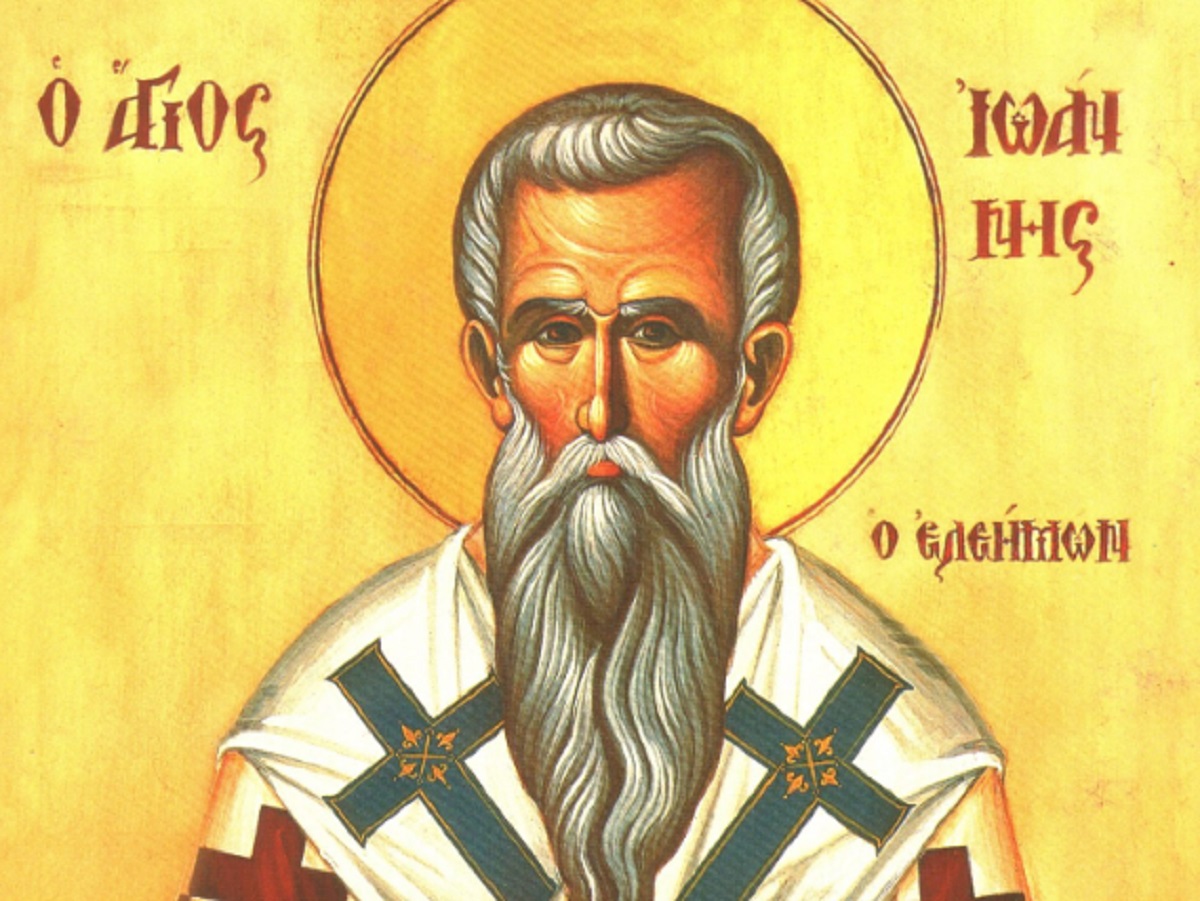

Saint John the Merciful, Patriarch of Alexandria, was born on Cyprus in the seventh century into the family of the illustrious dignitary Epiphanius. At the wish of his parents he entered into marriage and had children. When the wife and the children of the saint died, he became a monk. He was zealous in fasting and prayer, and had great love for those around him.
His spiritual exploits won him honor among men, and even the emperor revered him. When the Patriarchal throne of Alexandria fell vacant, the emperor Heraclius and all the clergy begged Saint John to occupy the Patriarchal throne.
The saint worthily assumed his archpastoral service, concerning himself with the moral and dogmatic welfare of his flock. As patriarch he denounced every soul-destroying heresy, and drove out from Alexandria the Monophysite Phyllonos of Antioch.
He considered his chief task to be charitable and to give help all those in need. At the beginning of his patriarchal service he ordered his stewards to compile a list of all the poor and downtrodden in Alexandria, which turned out to be over seven thousand men. The saint ordered that all of these unfortunates be provided for each day out of the church’s treasury.
Twice during the week, on Wednesdays and Fridays, he emerged from the doors of the patriarchal cathedral, and sitting on the church portico, he received everyone in need. He settled quarrels, helped the wronged, and distributed alms. Three times a week he visited the sick-houses, and rendered assistance to the suffering. It was during this period that the emperor Heraclius led a tremendous army against the Persian emperor Chosroes II. The Persians ravaged and burned Jerusalem, taking a multitude of captives. The holy Patriarch John gave a large portion of the church treasury for their ransom.
The saint never refused suppliants. One day, when the saint was visiting the sick, he met a beggar and commanded that he be given six silver coins. The beggar changed his clothes, ran on ahead of the Patriarch, and again asked for alms. Saint John gave him six more silver coins. When, however, the beggar sought charity a third time, and the servants began to chase the fellow away, the Patriarch ordered that he be given twelve pieces of silver, saying, “Perhaps he is Christ putting me to the test.” Twice the saint gave money to a merchant that had suffered shipwreck, and a third time gave him a ship belonging to the Patriarchate and filled with grain, with which the merchant had a successful journey and repaid his obligations.
Saint John the Merciful was known for his gentle attitude towards people. Once, the saint was compelled to excommunicate two clergymen for a certain time because of some offense. One of them repented, but the other fellow became angry with the Patriarch and fell into greater sins. The saint wanted to summon him and calm him with kind words, but it slipped his mind. When he was celebrating the Divine Liturgy, the saint was suddenly reminded by the words of the Gospel: “If you bring your gift to the altar and remember that your brother has something against you, leave your gift before the altar … first, be reconciled with your brother, and then come and offer your gift” (Mt. 5:23-24). The saint came out of the altar, called the offending clergyman to him, and falling down on his knees before him in front of all the people he asked forgiveness. The cleric, filled with remorse, repented of his sin, corrected himself, and afterwards was found worthy to be ordained to the priesthood.
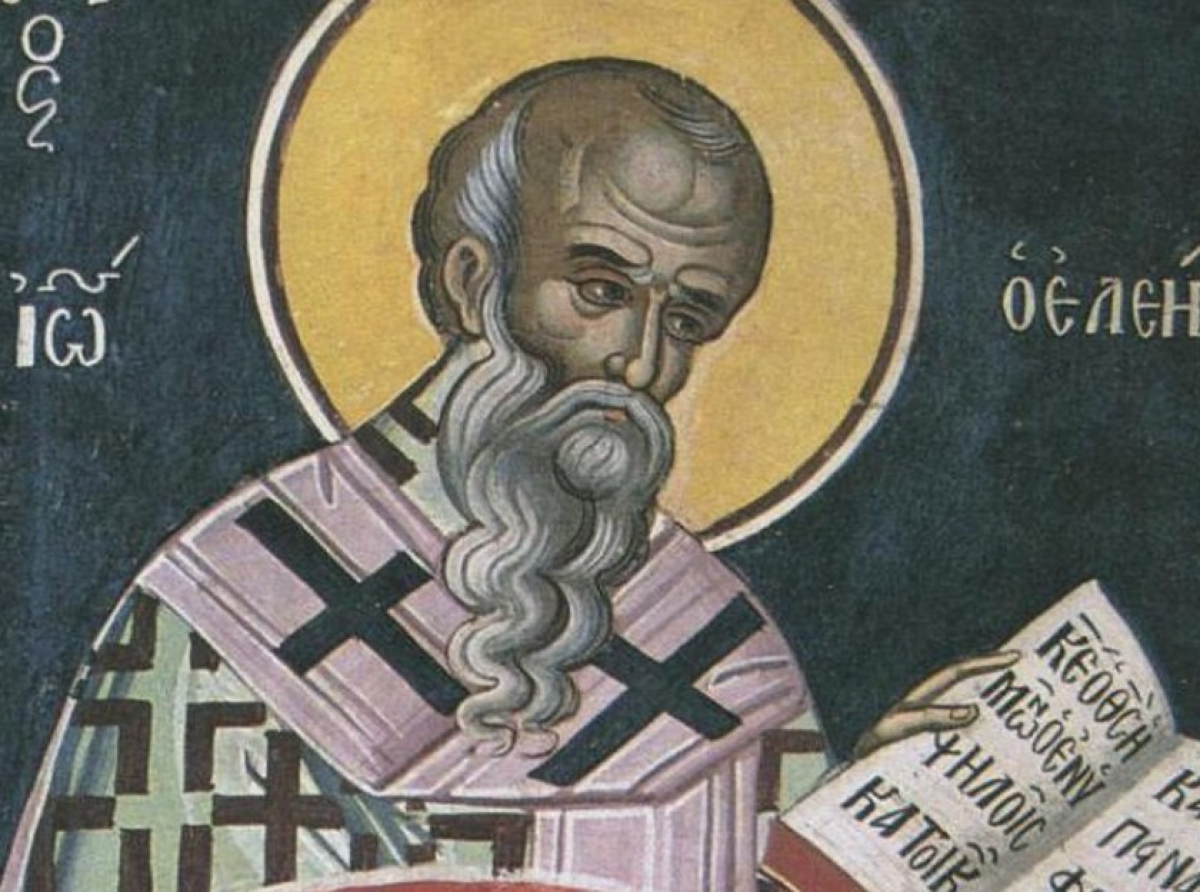

There was a time when a certain citizen insulted George, the Patriarch’s nephew. George asked the saint to avenge the wrong. The saint promised to deal with the offender so that all of Alexandria would marvel at what he had done. This calmed George, and Saint John began to instruct him, speaking of the necessity for meekness and humility. Then he summoned the man who insulted George. When Saint John learned that the man lived in a house owned by the church, he declared that he would excuse him from paying rent for an entire year. Alexandria indeed was amazed by such a “revenge,” and George learned from his uncle how to forgive offenses and to bear insults for God’s sake.
Saint John, a strict ascetic and man of prayer, was always mindful of his soul, and of death. He ordered a coffin for himself, but told the craftsmen not to finish it. Instead, he would have them come each feastday and ask if it was time to finish the work.
Saint John was persuaded to accompany the governor Nicetas on a visit to the emperor in Constantinople. While on his way to visit the earthly king, he dreamed of a resplendent man who said to him, “The King of Kings summons you.” He sailed to his native island of Cyprus, and at Amanthos the saint peacefully fell asleep in the Lord (616-620).
Saint John was born in 555 on the island of Cyprus in the city of Amathus; his father, Epiphanius, was a ruler of Cyprus. The Saint was consecrated Archbishop of Alexandria in 608. A man of exemplary uprightness, in his zeal for Orthodoxy he strove mightily to fight the many heresies among the Christians in Egypt; but above all, he was famous for his singular generosity, humility, and sympathy towards all, especially the poor. His mercy was so great that the report of it reached the Persian invaders of Jerusalem, who desired to see him because of it. Saint John reposed in 619, at the age of sixty-four.
John was born on the island of Cyprus. His father was Prince Epiphanius. John was raised as a true Christian from childhood. At the insistence of his parents, he married and had children. However, by God’s providence, his wife and children passed from this world into the next. Renowned for his compassion and piety, John was chosen as Patriarch of Alexandria in the time of Emperor Heraclius. He governed the Church of Alexandria for ten years as a true shepherd, safeguarding it from pagans and heretics. He was a model of meekness, charity and love for his fellow men. He said: “If you desire nobility, seek it not in blood but in virtues, for this is true nobility.” All the saints have been distinguished by mercifulness, but St. John was completely dedicated to this wonderful virtue. Once, while celebrating the Liturgy, the patriarch remembered the words of Christ, Therefore if thou bring thy gift to the altar, and there rememberest that thy brother hath aught against thee, leave there thy gift before the altar, and go thy way; first be reconciled to thy brother, and then come and offer thy gift (Matthew 5:23-24), and he remembered that one of the clergy in that church had a grievance against him. He quickly left the Holy Gifts, approached that priest, fell before his feet and begged for forgiveness. And only when he had made peace with this man did he return to the table of oblation. Another time, as he was on his way to the Church of Saints Cyrus and John, it happened that he met a needy and unfortunate widow who spoke to him at length about her misfortune. The patriarch’s escorts became bored by the woman’s lengthy complaint, and urged the bishop to hurry to the church for the service, intimating that he could hear the woman’s story afterward. John said to them: “And how will God listen to me, if I do not listen to her?” He would not leave until he heard the widow’s complaint to the end.
When the Persians attacked Egypt, Patriarch John boarded a boat to escape from danger. Along the way he fell ill and, when he arrived in Cyprus, he reposed at his birthplace, in the year 620 A.D. After he entered the Immortal Kingdom of his Lord, his miracle-working relics were translated to Constantinople, then to Budapest, and finally to Presburg.
Apolytikion of John the Merciful
Plagal of the Fourth Tone
In thy patience thou hast won thy reward, O righteous Father. Thou didst persevere unceasingly in prayer; thou didst love the poor, and didst provide for them in all things. Wherefore, intercede with Christ our God, O blessed John the Almsgiver, that our souls be saved.
Kontakion of John the Merciful
Second Tone
Thy riches and wealth didst thou disperse unto the poor; thou now hast received the Heavens’ riches in return. For this cause, O all-wise John, we all honour thee with our songs of praise as we keep thy memorial, O namesake of almsgiving and of mercy.
Source: oca.org / goarch.org / westserbdio.org


